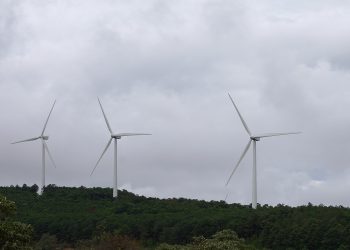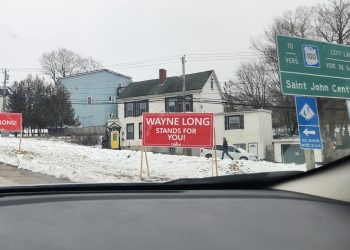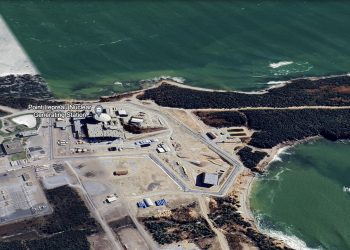
Some New Brunswick Maliseet are interpreting a traditional black snake prophecy as TransCanada’s Energy East pipeline that will ravage the people of the Wolastoqiyik (Saint John River) says Tobique First Nation Band member Beverly Perley.
The prophecy was told to Perley by her aunt Barbara Nicholas. “A snake is going to come from the West to the East, across our land and poison our waters and land,” says Perley, “The only way to kill it, is to cut off the head of the snake.”
Perley questions whether the head of the snake is TransCanada Corp or the provincial governments involved in the Energy East Pipeline project that plan to pump 1.1 million barrels of crude oil per day from Alberta to marine terminals in Cacouna, Quebec and Saint John, New Brunswick.
The prophecy says that the head of the snake must be cut off before it reaches the Wolastoq area. Perley says the Wolastoqiyik people must “face it head on, stand up to it, and face our fears… Once it’s here, there is no way to cut the head off the snake.”
The pipeline is planned to be laid underneath the Tobique River about mid-point between Tobique First Nation and the town of Plaster Rock where Mayor Alexis Fenner supports the pipeline. The Tobique River runs along the Tobique First Nation and into the Saint John River.
The Maliseet people or Wolastoqiyik in Tobique, Kingsclear, St. Mary’s and Oromocto First Nations are located along the Saint John River, downstream. Many Maliseet are worried how they would be affected if a pipeline spill were to occur at the Tobique River crossing.

The environmental impact of a pipeline breach is a major concern for Perley and many Wolastoqiyik people. Perley fears that a spill will contaminate the aquatic habitat in the Tobique and Saint John Rivers, along with the lakes, streams and brooks that flow to and from the rivers. She also fears that foods and medicines from the ground and trees, wildlife and drinking water may be put in jeopardy.
Perley believes that the greatest allies in fighting the black snake will come from Wolastoqiyik ancestors through spiritual ceremony. The sacred pipe, sweat-lodge ceremonies, traditional feasts and interpreting centuries-old wampum-belts will give guidance and direction to combat the black snake. But, “a standoff might be the only possible option,” says Perley.
Hart Perley, Traditional Turtle Clan Mother of the Maliseet and Tobique resident, says that the black snake will be double-headed. She interprets this as the head of TransCanada Corporation CEO Russ Girling and the head of the Provincial Government Brian Gallant.
The elder believes that the heads of the snake must be cut off but not in the literal sense, rather by being “prepared to take action if necessary.” She feels that another Rexton-type confrontation may happen. Anti-fracking protesters clashed with the RCMP on a highway in Rexton on Mi’kmaq territory on Oct. 17, 2013 resulting in four police vehicles being burnt and 40 arrests.
“There are many people ready to demonstrate… We are waiting on the Mohawks,” says Perley noting that plans for the pipeline also pass through Mohawk territory.
Andrea Bear-Nicholas, a native studies professor at St. Thomas University from Tobique, believes that First Nations have the authority to impede development on land in the province.
The treaties signed in the 18th century in New Brunswick were treaties of peace and friendship between the native people and the British. “The treaties were not land surrenders,” says Nicholas. “In fact they did not speak about land at all.”
A Supreme Court of Canada ruling in the Tsilhqot’in v. British Columbia case was resolved in favour of First Nations, affirming Aboriginal title of land that was never surrendered in a treaty. Given that Aboriginal title is protected by the Canadian constitution, governments cannot deal with, or interfere with, the Tsilhqot’in First Nation’s use of the lands and resources without their consent; i.e. the province of British Columbia will no longer be able to issue permits to third parties for land use or resource exploitation on those lands.
Nicholas believes that the Tsilhqot’in and Maliseet struggles are comparable because both nations never surrendered their land in treaties. “This is not a Tobique issue, this is a Maliseet issue,” says Nicholas.
Responding to a statement by the Assembly of First Nation Chiefs of New Brunswick on the pipeline issued in early November, Nicholas writes in a letter published in the Telegraph-Journal on Nov. 12, “the Maliseet people, including not only Indian Act Chiefs and Councils, but also the Maliseet Grand Council, need to get together to stake title claim and to declare a position on the pipeline.”
Anthony David Peter-Paul is a journalism student at St. Thomas University in Fredericton.










